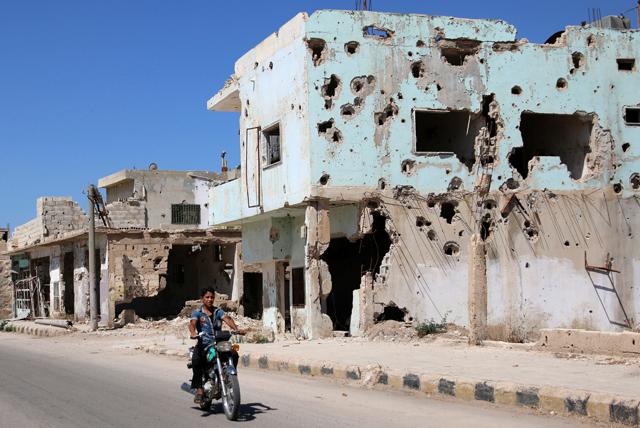You are here
Iran’s Zarif says use of chemical weapons in Syria cannot be condoned
By Reuters - Feb 19,2017 - Last updated at Feb 19,2017

Mohammad Javad Zarif, minister of foreign affairs of Iran, speaks at the 53rd Munich Security Conference at Hotel Bayerischer Hof in Munich on Sunday (Anadolu Agency photo)
MUNICH — Iran’s Foreign Minister Mohammed Javad Zarif, pointing to extremist militants in Syria fighting against its allies in Damascus, told the Munich Security Conference that the use of chemical weapons could never be condoned.
Damascus, an ally of majority-Shiite Iran, this week rejected a recent Human Rights Watch report that said its military and allied forces had used chemical weapons during their capture of Aleppo last year. It instead accused anti-government fighters of using chemical weapons.
“The use of chemical weapons can never be condoned... Unfortunately, the terrorist organisations Al Nusra and Daesh still possess chemical weapons,” Zarif said.
A UN Organisation for the Prohibition of Chemical Weapons enquiry assigned to identify organisations and individuals responsible for the chemical attacks concluded last October that Syrian government forces had used chlorine as a chemical weapon at least three times in 2014-15. The Daesh terror group militants, it said, had used sulphur mustard gas in one attack.
The UN Security Council extended the mandate of the enquiry, known as the Joint Investigative Mission, until November this year. It is due to issue its next report by Saturday.
The United States last month blacklisted 18 senior Syrian officials it said were connected to the country’s weapons of mass destruction programme, after an international investigation found Syrian government forces were responsible for chlorine gas attacks against civilians.
Human Rights Watch Executive Director Ken Roth told delegates the issue was likely to be discussed between major powers in the coming days.
“Another big test coming up is in the Security Council, probably just this next week, of the so-called joint investigative mechanism established by the Security Council,” Roth said.
“So, the question comes up, what’s next? The French have taken the lead in drafting a resolution and put it on the table imposing sanctions for Syria’s use of chemical weapons, and Russia is threatening to veto it.”
France said on February 14 that the UN had to respond to the use of chemical weapons with a resolution that would punish those responsible for repeated attacks.
A French diplomatic source said that Paris was still looking for the right time to put the resolution to a vote, but that it was working on a new text in the hope of ensuring it was supported by Bashar Assad’s ally, Russia.
“We have again started work on a text with our partners,” the source said.
Related Articles
UNITED NATIONS, United States — Syrian government forces used deadly nerve gas in Khan Sheikhun and in three other recent attacks, Human Rig
The United States wants a team of United Nations investigators to determine who is to blame for chemicals weapons attacks in Syria in a bid to pave the way for Security Council action against those responsible, diplomats said on Tuesday.
BEIRUT — The Syrian government has denied a UN report accusing it of a sarin attack in April that killed scores of people, state media said

















